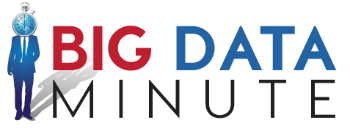
by Rich Benvin | Nov 16, 2015 | Business Transformation
Car accidents are never a good thing, whether they range from a simple fender bender to a full on smash, they greatly affect our lives. Car crashes can lead to serious, life altering injuries as well as become very expensive in hospital and automotive repair costs. Overall a car accident is something no one wants to experience. With the winter rolling in here in Colorado, poor road conditions and snow lead to a lot of motor vehicle accidents.
What if we could better prevent this?
With the technology in cars advancing everyday it is not a far stretch to believe that we will soon be driving cars that can communicate to one another. Imagine, you are driving at night and all of a sudden your dash board alerts you there is black ice a mile ahead of you. At this point you have plenty of time to slow your speed and take extra precautions to avoid sliding across the almost otherwise undetectable ice. Now how did your car know there was a hazard a mile ahead of you? The cars driving towards you, who had already encountered the ice would send a signal to your car informing it of the potential danger.
This type of alert is already being used in the trucking industry. Trucks are not yet equipped with the technology to communicate to one another yet, but the drivers are beginning to use IBM’s MessageSight system to connect with other drivers more easily. This allows drivers to relay information to one another about road conditions, possible hazards, and even a fellow truck that may need assistance. By connecting the drivers to more real time information, they can determine better routes and get to their destination faster and with less issues. IBM’s MessageSight is optimizing the entire trucking industry by simply providing a network for drivers to communicate with one another.
With this type of technology we are already seeing the trucking industry save money by becoming more efficient with their routes, but as the automobile technology advances we will begin to see a lot more than that. Hopefully as cars become more intelligent we will see less accidents saving people money and possibly their lives.

by Stephanie Rabinowotz | Oct 16, 2015 | Business Transformation
The student loan debt in the United States has reached $1.2 trillion and the average graduate is released into the real world $24,000 in debt. Does it sound like student loans are becoming a problem? I think it is safe to say, YES!!!!
As a somewhat recent graduate it is sad to see my generation accepting student debt as just a way of life. People constantly say, ” It”s good debt”. What?! There is nothing good about owing banks thousands of dollars. Not to mention that many undergraduate degrees these days do very little to actually land recent grads career worthy, well paid jobs. Many degrees don’t get graduates anywhere unless they go to grad school as well. It is difficult enough for a new graduate to learn how to live on their own, paying rent and bills, only to tell them they need to pay off their student loans quickly or else interest will bury them alive. Oh and this is all while making about a $30,000/ year salary.
Now that my rant is finished we can discuss if there is a possible light at the end of the tunnel for this crisis. Thankfully there are some new Startups that are helping re think the way student loans work. Traditionally student loans are granted based on credit score and have a very strict repayment schedule. New companies like Earnest are going against the lending rules and not considering credit scores when accepting borrowers. Instead, the new company looks at a borrower’s bank records, credit cards and even social media profiles to decide if they are a trustworthy person.
You may be wondering how a company can decide what makes someone a trustworthy person? Well, Earnest uses a big data approach, looking at many different parts of an individual rather than simply one credit score that may not fairly represent that person. Earnest takes the data a potential borrower provides and puts it into their underwriting program to find what they call the “highest quality clients”. Earnest’s philosophy is not over charging financially responsible individuals with high interest rates just because they wanted an education. Earnest also allows borrowers to pay in a much more flexible fashion, choosing the length and frequency of payments as well as the option of fixed or variable interest rates.
The reason Earnest can offer lower interest rates and flexible payment schedules is because of big data. The company uses big data to make quicker, more informed decisions on who to lend to, ultimately saving the client money by skipping and extra labor or middle men. It never ceases to amaze me how many different areas big data can be used in to create efficiency and reel in savings. Maybe if other lending companies adopted the big data approach to determine which of their clients are financially responsible then they could charge them less interest. This would be a great incentive for people to pay their loans on time every month!
Let us know what you think! Student loans are a heavily debated topic, we know you have an opinion, and odds are you have student debt as well!
Tell us your thoughts on our Facebook PAGE!

by Stephanie Rabinowotz | Sep 16, 2015 | Business Transformation
The key to saving money is to not spend it on the unnecessary. Well how do you decide what is necessary and not? This is sometimes a tricky tango that involves taking risks and investing in the resources you have.
Save money with more user friendly technology!
This means, don’t buy programs for your company that are so complex they require you to hire an entire IT team just to manage them. People love simple. Why is that? Because it is efficient, it allows us to spend more time on the important things rather than wrestling with the difficult.
One company that has grasped this concept is Salesforce. Some of you out there might be thinking whoa whoa wait a second, Salesforce, simple? Salesforce has just announced their launch of IoT Cloud which is a tool that workers can use to program unique actions based on Big Data. This tool takes Data from websites, social media, and internet devices and puts in in the hands of its user.
Not only does this tool make it much easier for a sales team to gain access to information, but it is also simple enough for a non “techy” person to use daily. The great part about this program is that any business that uses Salesforce can get an upgraded version without having to worry about if it is too complicated for their sales staff to use.
The best way to save money in a business is to invest in the people you already have, give them the tools needed to be successful and make things simple. Instead of spending money on an IT team, it is more beneficial to purchase an easy to use program and train your current staff to manage it.
To find out just how simple Big Data can make your life, CHECK OUT THIS VIDEO!

by Tara Buck | Sep 11, 2015 | Big Data, Business Transformation, Predictive Analytics
Big Data is making its way through every industry possible, including the hotel industry. This industry is another perfect example of how effective use of analytics can dramatically change how a business is run. There are many types of data being collected including video, audio, and web data, and there are huge volumes of each. However, many hotels are carrying all of this data with them, but not acting upon a majority, if any of it.
Many hotels gather loyalty information about their guests, but fail to take it a step forward. This, to me, is the perfect opportunity for any and all forms of predictive analytics.
Hoteliers could exploit their data and deepen their knowledge of guests in order to develop a more granular understanding of segment behavior, needs, and expectations; identify profitable customer segments and their buying preferences; and identify opportunities to attract new guests.
In this industry, understanding guest preferences, purchase behavior, and profit potential can dramatically increase brand loyalty and wallet share of their most valuable guests.
One key factor that hotels must be aware of throughout this process is what guests they are targeting. Targeting the frequent guests who are likely to take advantage of other hotel amenities would generate much more overall profit than targeting the guests that are just stopping by. By marketing to their most loyal guests preferences, hotels will find themselves staying ahead of trends, setting strategies, and achieving their goals. This will then lead to happier guests, and more money in the bank.
And look at that…all of that can be done with the right analysis of data!

by Stephanie Rabinowotz | Sep 9, 2015 | Business Transformation
As the average American I hear gas and oil and automatically picture money flying out of my wallet. Assuming that this is the mindset of most of our population, it is hard to feel bad for the oil and gas companies when we hear they are losing money. The problem is that most people don’t look at both sides of the situation- the lower our gas prices become, the more employees that being laid off in the oil and gas industry.
The oil and gas companies have been living in luxury for a number of years, but now that the price of gas per barrel is dropping the industry must be more cautious in the way they operate. The big oil and gas companies are now turning to Big Data to make their operations more efficient.
Startups such as Tachyus are jumping at the opportunity to develop models that will aid in the oil and gas industry. Tachyus has a data model that is helping oil production increase by 20%-30%. These data models can predict mechanical failures and stimulate specific wells by calculation optimal settings such as water injection rates. As oil and gas companies acquire more information about each unique well, they will be able to specialize maintenance, allowing each well to produce at its full potential, while also preventing spills.
As the oil and gas companies learn to operate more efficiently they will hopefully be able to create more jobs again and no longer have to make any more cuts.
Let us know what you think, this is an oil and gas conversation… I know you have an opinion!
Tell us your stance on our Facebook Page!

by Rich Benvin | Jul 27, 2015 | Business Transformation, Case Studies
For the burgeoning satellite radio industry, competition drove the market. Improving service delivery meant the difference between continued growth or a quick decline. To address this, the client, one of the world’s most aggressive providers of satellite radio, chose Cliintel to align its billing and operational support systems. The success of this project enabled the satellite radio provider to achieve their aggressive implementation objectives and advance their competitive position.
The Client:
The client, one of the largest satellite radio service providers offering a digital radio service that transmits 100 streams of digital-quality music and entertainment from its broadcast studios.
Through the utilization of Cliintel’s evaluation framework, the client was able to select the new billing system, configure, implement, convert the old data and scale the new system to 4x its original size in less than 7 months.
The Business Issue:
For this industry, the Subscriber Management System (SMS) holds the key to service delivery, facilitating gains in market share and ultimately shareholder returns. The client knew that their current SMS had functional shortcomings that were directly impacting its ability to collect revenue as well as provide the desired level of customer service. The system needed evaluation, and the client was prepared to implement a replacement if necessary. The client needed an aggressive assessment and plan that would work within operational and financial constraints.
The focus of the project was to evaluate the current billing system, define desired functionality and select a replacement subscriber management system if necessary.
The SMS needed to:
- Capture and make available timely, accurate, customer and partner data
- Enable testing and timely implementation of new services, marketing programs, and strategies to leverage continued growth
- Contribute to the growth and retention of customers, as well as partners, with cost-effective, reliable technologies.
A system strategy would also be developed to enable the client to grow the business aggressively, accommodate new business models, and respond to changing business conditions, without undue expense or over-reliance on manual processes and procedures.
Through the utilization of Cliintel’s evaluation framework, the client was able to select the new billing system, configure, implement, convert the old data and scale the new system to 4x its original size in less than 7 months.
The Solution:
Cliintel broke down the work structure into smaller, more manageable processes, which ensured the capture of all business-critical requirements. The methodology allowed for the collection, documentation and prioritization of system requirements without disrupting the ongoing operations of the client, or placing an undue burden on the team members who represented the functional areas. From this foundation, a requirements matrix was developed that enabled the client’s executive steering committee to highlight current critical business needs as well as identify areas requiring enhanced scalability.
Cliintel performed an SMS Gap Analysis on the current system, focusing on the best-practice constructs of features and functionality, adaptability, vendor risk, architecture and scalability, deployability and economics. As a result of this analysis the steering committee concluded that their current SMS provider lacked the stability and scalability the client would require. Cliintel was further engaged to help find a more suitable replacement solution.
This process involved an initial request for information (RFI) from 45 SMS service providers. Cliintel tailored the information requests to the clients business and system requirements and the same six constructs that were used to evaluate the legacy system. Analysis of the responses to the RFI led to the identification of the top five SMS providers, which were sent requests for proposals (RFPs).
Cliintel reviewed the RFPs and created executive “wrappers” for the steering committee, highlighting their evaluations. Invitations for product demonstrations were sent to the best candidates from this group. Cliintel created scenarios to test the extent of product functionality provided by the vendors. Cliintel also created scorecards to assist the client in ranking vendor performance during the demos.
Based upon the demonstrations, requested documentation, and interviews with the potential provider’s customers, Cliintel worked with the client in the selection of their new SMS provider. In addition, Cliintel created a high-level implementation plan and cost-estimates for the implementation, integration and management of the recommended solution.
The Project Results
Cliintel’s SMS evaluation allowed the client to select a system more suitable for their expanding business needs while keeping their focus on their core business. By prioritizing the requirements, the gap analysis enabled functional departments to more fully understand their business and establish a common goal. Through the utilization of Cliintel’s evaluation framework, the client was able to select the new billing system, configure, implement, convert the old data and scale the new system to 4x its original size in less than 7 months.
We’re proud to help our clients solve tough problems and achieve stunning results. To see what kind of results Cliintel can deliver for you, please visit www.cliintel.com or e-mail askcliintel@cliintel.com.












Recent Comments